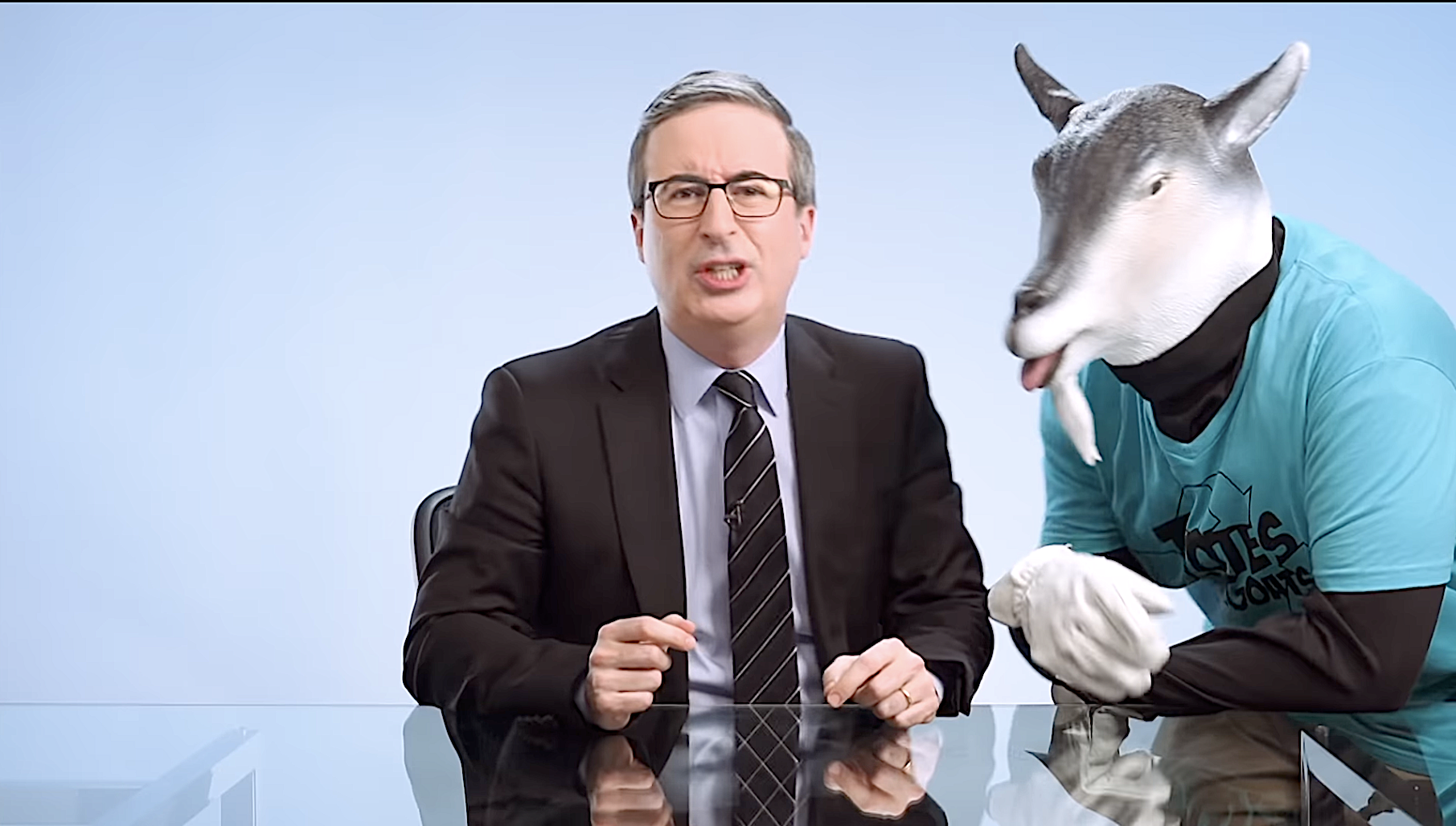Plastics recycling is 90 percent garbage, John Oliver says, but that's not your fault and there is a fix


A free daily email with the biggest news stories of the day – and the best features from TheWeek.com
You are now subscribed
Your newsletter sign-up was successful
"Plastic really is ubiquitous," but "for almost as long as plastics have been around, there's been the question of what to do with them after they're used," John Oliver said on Sunday's Last Week Tonight. This is an urgent, growing question, too. "Half of all plastics ever made have been produced since 2005," he said, and "a lot less plastic winds up getting recycled than you might think" — less than 9 percent in the U.S.
"The fact is, a huge amount of the plastic surrounding us isn't recycled because it's not really recyclable, and that means that it ends up in landfills, or burned, or in the ocean, where it breaks down into microplastics, gets eaten by fish, and can end up inside us," Oliver said. "A recent study even estimated that an average person globally could be ingesting about a credit card's worth of plastic into their system every week. Which kind of explains Capital One's new slogan: 'What's in your stomach?'"
Oliver ran through the history of platics and plastics waste, but he focused on "how the plastics industry has managed to convince us all that it's our fault." Even the recyling movement is "often bankrolled by companies that wanted to drill home the message that it is your responsibility to deal with the environmental impact of their products," he said. "And honestly, it wasn't all that difficult for them to convince us that all their waste is recyclable, because we so badly want to believe it." The recycling industry calls this "wishcycling."
The Week
Escape your echo chamber. Get the facts behind the news, plus analysis from multiple perspectives.

Sign up for The Week's Free Newsletters
From our morning news briefing to a weekly Good News Newsletter, get the best of The Week delivered directly to your inbox.
From our morning news briefing to a weekly Good News Newsletter, get the best of The Week delivered directly to your inbox.
This is a complicated problem, exacerbated by China's 2018 decision to stop taking most of the world's platic recycling waste, Oliver said. "On a personal level, I know this can feel demoralizing, because it can seem that recycling is pointless. But it's important to know that it's not. We should absolutely keep recycling paper, cardboard, and aluminum — and even recycling plastic, while it may be 90 percent more pointless than you assumed, can still have modest environmental benefits," if you recycle only the kinds your local municipality accepts. But "our personal behavior is not the main culprit here, despite what the plastics industry has spent decades and millions of dollars trying to convince us," he said. "The real 'behavior change' has to come from plastics manufacturers themselves." There is a lot of NSFW language before Oliver gets to his proposed solution. Watch below. Peter Weber

A free daily email with the biggest news stories of the day – and the best features from TheWeek.com
Peter has worked as a news and culture writer and editor at The Week since the site's launch in 2008. He covers politics, world affairs, religion and cultural currents. His journalism career began as a copy editor at a financial newswire and has included editorial positions at The New York Times Magazine, Facts on File, and Oregon State University.
